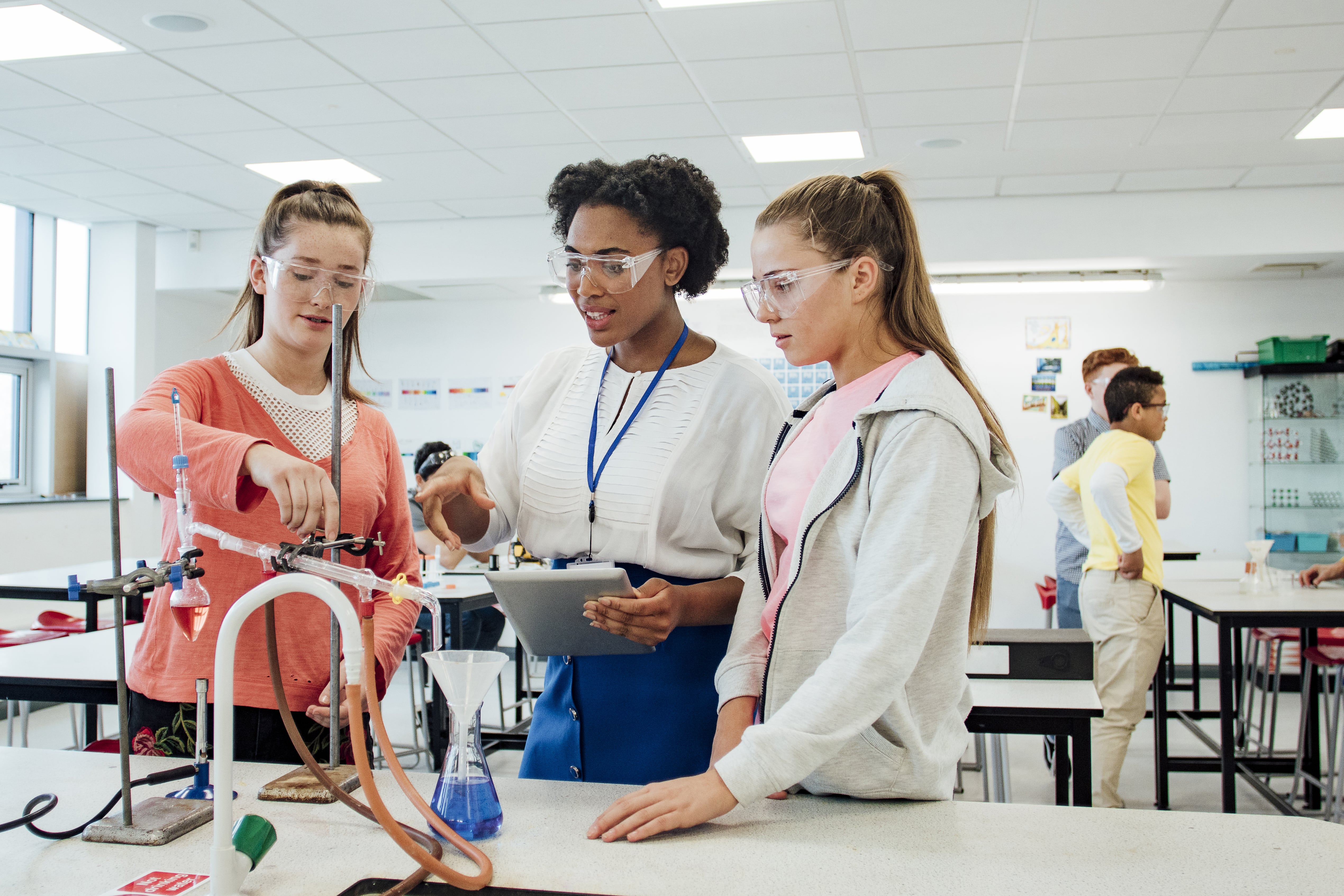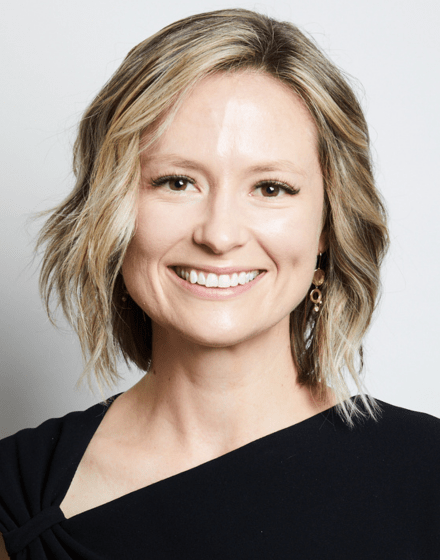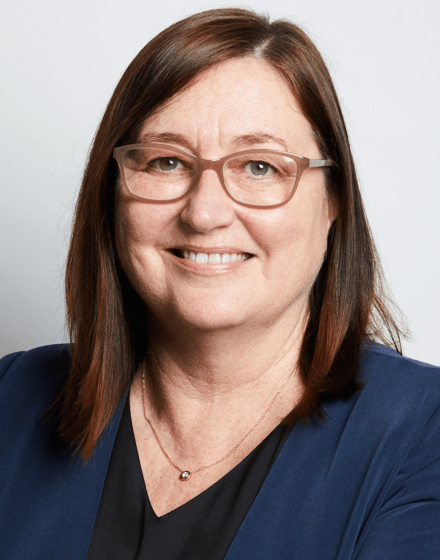You can search for courses, events, people, and anything else.
Dr Erin Mackenzie is on a mission that started during her time as a high-school science teacher. She wants to get more young people, especially young women, engaged in and choosing science, technology, engineering, and mathematics (STEM) careers.
"The more kids that are engaged in science, the more scientifically literate our society is going to be," she explains.
At Western Sydney University, Mackenzie — a senior lecturer in educational psychology and STEM — is drawing on both her science and secondary education backgrounds to better understand the barriers to STEM education for girls in high school, and what can be done to overcome them.
Mackenzie says she became a teacher because she loved both science and teaching, but after a few years in schools, she became interested in educational psychology and how that might be applied to support more girls to stay engaged with STEM, which prompted her move into academia.
"If we know student attitudes can be changed, let’s identify the attitudes that need to be changed before we lose them out of certain STEM subjects," she says. For example, girls made up only 20% of the students who took physics at HSC level last year — although they are equally matched with boys in their academic outcomes in the field. Biological sciences in contrast has almost twice as many female students as male students.
The best way to understand student attitudes to STEM is to hear from young people themselves. So Mackenzie, along with co-investigators Distinguished Professor Kathryn Holmes and Dr Nathan Berger, is working with seven private and selective high schools in western Sydney to survey their students in years eight, nine and 10.
The online survey explores factors such as students' 'self-efficacy' in science, which is a measure of how confident they are in their ability to learn science; their beliefs around whether people have an innate aptitude in STEM subjects, or whether it’s possible to grow and learn; and their levels of anxiety around maths and science.
The survey also assesses their enjoyment of science, and how relevant and useful they believe science is. Most importantly, it asks students how keen they are to take various STEM subjects.
"If we can identify which of the attitudes influence the extent to which students intend to take biology, chemistry and physics, then we can work with the teachers to say, 'This is the thing that you need to do to intervene in your particular school'," Mackenzie says.
It was also important for the survey to separate out the different sciences, which otherwise tend to get grouped under the one heading of 'science'. "That allows us to tease apart a little bit some of those gender differences," she says.
Mackenzie stresses the importance of not just studying students' attitudes, but developing practical ways that teachers can work with students to influence these attitudes. "Students' attitudes are very changeable, and can be malleable depending on the things that teachers do in the classroom," she notes.
The study will be looking both at the survey results as a whole, as well as how they vary between individual schools.
Need to know
- Western researchers are investigating why girls may decide against taking STEM courses.
- They found that maths anxiety and lack of understanding of how they will use the subject in their daily lives contributes to this.
"We need to remove those barriers that make girls think STEM is not for them."
FIGHTING MATHS ANXIETY
One of the schools participating in the study is already getting feedback from the survey results and working out how to apply those to increase uptake of STEM subjects.
"Being involved in the project has highlighted a couple of key areas where we can take action," says a teacher participant. "That’s the most empowering thing about how this research has been designed, it’s not purely theoretical — it’s grounded in a practical mentality."
While the study is still underway, it has already delivered some valuable insights into the drivers of, and barriers to, choosing STEM subjects in high school.
One of the key findings so far is that students with greater anxiety about maths are less likely to choose to study not just physics, but chemistry as well. "In most schools in Australia we teach mathematics and science in separate silos, but that’s not how they interact in the real world," Mackenzie says. The study also found that maths anxiety was more common in girls, which may explain gender differences in enrolments in subjects such as physics.
That observation has led to a focus on the importance of getting maths and science teachers together — something which has already started happening at some of the schools, after Mackenzie’s research team presented its findings.
"Because we found that link between maths anxiety and students being less likely to take physics and chemistry, they then started having those professional conversations [about how to better collaborate] that wouldn’t have happened without their students' data," Mackenzie says.
Mackenzie and her colleagues are also hoping to develop a scale to measure STEM anxiety, to complement an existing 'maths anxiety' scale. "We are interested in whether there are better ways to measure a broader view of anxiety across the sciences," she says.
The survey also highlighted the importance of a student’s confidence in their ability to learn a subject, and in their choice of which subjects to study. Teachers can help boost confidence by ensuring students have 'mastery experiences', whereby they succeed at a particular task in a subject. This helps to convince them they are capable of doing something well and also means that they worry less about making mistakes as part of the learning process.
REAL WORLD IMPACT
Surprisingly, the survey also found that just because students enjoy science, that doesn’t mean they will choose it as a subject. What was more important to their decision was how relevant they thought STEM was to their future lives.
"Students often ask, 'When am I ever going to use this?’'" Mackenzie says. "Responding to that is a very easy intervention, because it’s about being explicit to students about how what we’re learning right now influences them or is aligned with their everyday life."
Dr Isabelle Kingsley, research associate for the Office of the Women in STEM Ambassador —an Australian government initiative which aims to address gender inequities in STEM — says previous findings support the importance of emphasising the real-world relevance of STEM subjects for all students, but particularly girls, whom she says tend to have a greater interest in the social context of what they’re learning and doing.
"A lot of people think an engineering job means you’re going to build bridges," Kingsley says. "There are so many other things that you can do with engineering that will really have a positive impact on the world."
The study has already generated two research papers and several conference presentations, and Mackenzie is preparing the reports that will go back to individual schools detailing what the survey has revealed about their students’ attitudes and beliefs about STEM. "We’ll talk to the schools about what sorts of things they can possibly do," she says.
While there have been major gains in increasing the number of female role models in STEM, Kingsley says changing teaching approaches to STEM is vital. "We need to change how we teach STEM subjects to remove those barriers that make girls think that STEM is not for them."
Erin Mackenzie’s research is on the right track to achieve this.
Meet the Academic | Dr Erin Mackenzie
Erin Mackenzie is a Senior Lecturer in Educational Psychology and STEM in the School of Education, Director of Academic Program of the Postgraduate Specialist Studies program, and a researcher in the Centre for Educational Research at Western Sydney University. Her research focuses on addressing gender imbalances in STEM education and on adolescent wellbeing in school contexts. Erin is the lead investigator of the InSPIRE (Increasing Science Participation Integrating Research and Education) program, which has resulted in significant contributions to knowledge about adolescents’ attitudes towards science. She has also contributed to research teams awarded over $1.6M in external funding and has developed a substantial outreach record that focuses on translation of educational research for teachers and parents to support adolescent wellbeing. Erin currently lectures in educational psychology, secondary science pedagogy, and STEM education, working with both pre- and in-service secondary teachers. She is a Senior Fellow of the Higher Education Academy and has extensive experience in designing and delivering professional development to teachers.
Meet the Academic | Distinguished Professor Kathryn Holmes
Kathryn Holmes is Distinguished Professor of Education and Director of the Centre for Educational Research in the School of Education. Her research focuses on STEM education and factors related to increasing women and girls’ involvement in STEM subjects during schooling and in STEM career pathways post-school. She has received more than $5 million in research funding and is currently the lead academic on two large projects in collaboration with the NSW Department of Education. The first is focussed on improving teaching in the senior years of secondary school via the delivery and evaluation of innovative professional learning for teachers, and the second examines the factors related to student engagement in mathematics in the junior secondary years of schooling and how these factors influence students’ mathematics choices in senior secondary school. She has published more than 60 peer-reviewed articles and is the co-author of Technology-enabled Mathematics Education: Optimising Student Engagement. She has received a national teaching award for the development and delivery of a retraining program for secondary mathematics teachers and the WSU Excellence in Research in an Interdisciplinary Team award in 2021.
Meet the Academic | Dr Nathan Berger
Dr Nathan Berger is a Senior Lecturer in Secondary Education at Western Sydney University. A graduate of the University of Newcastle, Dr Berger holds degrees in information technology, secondary teaching, and educational research. His PhD examined the development of career and education aspirations during childhood and adolescence from a social psychological perspective. Dr Berger is primarily a quantitative researcher and currently focuses on analysing large-scale datasets such as the Trends in International Mathematics and Science Study, but he is also well versed in qualitative methods such interviews, focus groups, and classroom observations which provide important contextual information about young people’s experiences at school. His research focuses on motivation in educational contexts, with current research programs aiming to understand and improve school students’ attitudes towards mathematics and science subjects. Working closely with colleagues at Western and other institutions, Dr Berger’s research has attracted $2.7m in external funding, enabling collaboration with stakeholders across government and private education sectors. Collaborators have included the NSW Department of Education, Transport for NSW, Infrastructure NSW, and the Catholic Education Diocese of Parramatta. Dr Berger has a decade of experience as an initial teacher educator and leader of teacher professional learning in both primary and secondary contexts. Dr Berger currently teaches a range of foundational and specialist studies in the Master of Teaching (Secondary) and Master of Education programs at Western. Dr Berger is engaged in the development of the teaching profession through his current tenure as the Academic Program Advisor for Secondary Teacher Education and his service as a NSW Education Standards Authority accreditation panellist and chair.
Credit
Future-Makers is published for Western Sydney University by Nature Research Custom Media, part of Springer Nature.
© Stanislaw Pytel/Stone/Getty
© Anchiy/E+/Getty
© SolStock/E+/Getty
© urbancow/E+/Getty








